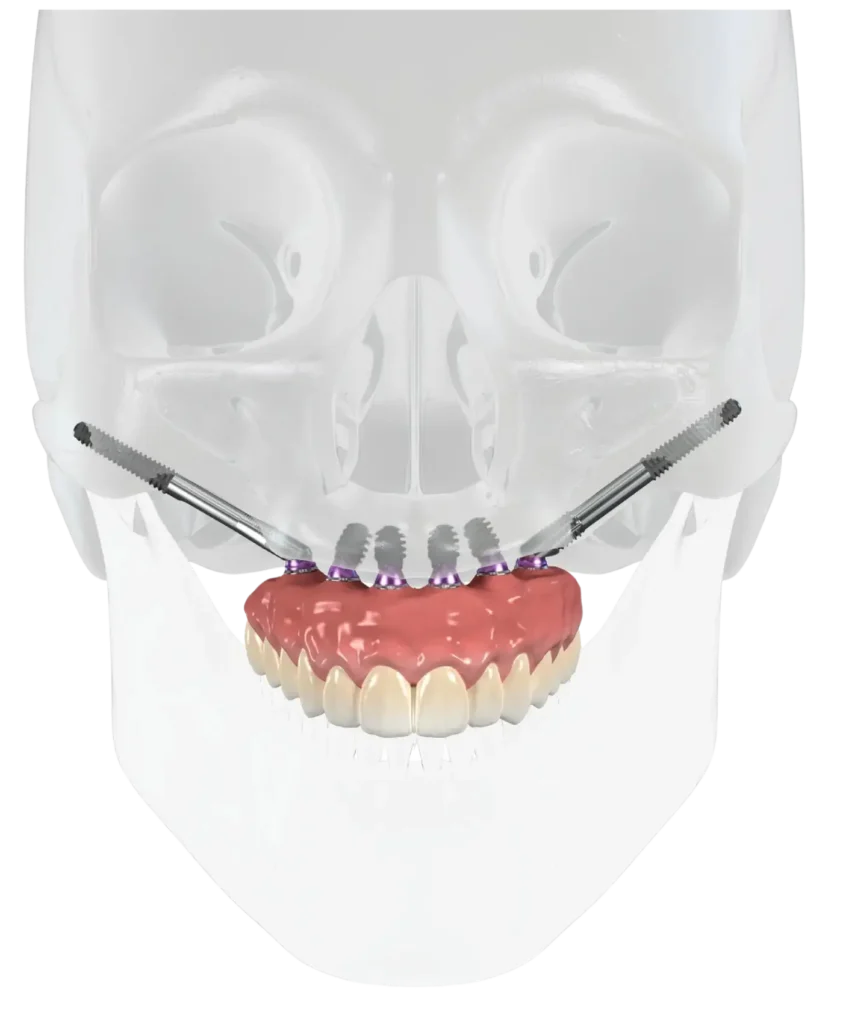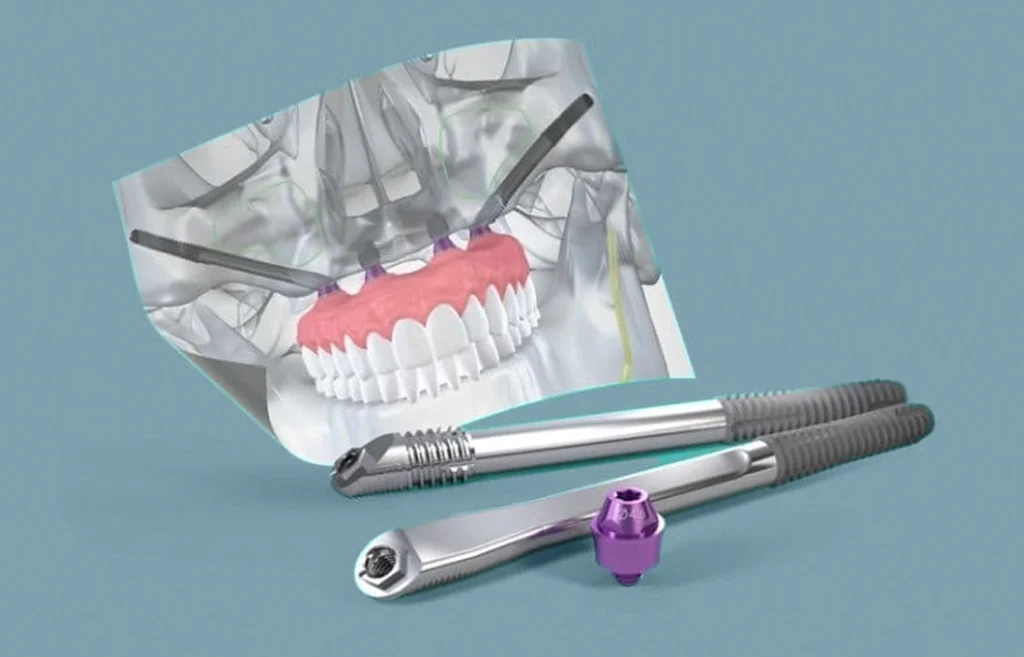Permanent
Full Mouth Dental Implant!
All On Four Implants are a premium solution for patients with severe bone loss who are told that traditional implants are not possible.
Contact us now and we will create your customized treatment plan together.


What Is Full Mouth Dental Implant?
Full mouth dental treatment is a comprehensive treatment plan aimed at functionally and aesthetically restoring all teeth in the mouth. This approach simultaneously addresses tooth loss, decay, wear, gum disease, and aesthetic issues. The methods used may include dental implants, bridges, crowns, veneers, gum treatments, and orthodontics.
Comparison of Full Mouth Dental Treatment with Other Treatment Methods
Full mouth dental treatment differs from localized dental procedures or single-implant restorations by focusing on the complete reconstruction of the mouth’s function and aesthetics. While techniques like All-on-4/6 or zygomatic implants are designed specifically for cases of full edentulism or severe bone loss, full mouth treatment is suitable for a wider range of cases—both partial and complete tooth loss—combining multiple restorative and cosmetic methods to achieve optimal results.


Success Rates and Scientific Evidence for Full Mouth Dental Treatment
Full mouth dental treatments have demonstrated high success rates, often exceeding 95%, especially when performed using modern digital dentistry technology. Studies in prosthodontics and implantology have shown that, with proper planning and maintenance, such comprehensive reconstructions can maintain excellent function and aesthetics for 15–20 years or longer. The combination of advanced imaging, precise planning, and high-quality materials ensures predictable, long-term results.
Anesthesia and Sedation for Full Mouth Dental Treatment
The choice of anesthesia depends on the complexity of the treatment plan. Most procedures can be performed under local anesthesia combined with conscious sedation for patient comfort. For extensive surgical work, such as multiple implant placements, general anesthesia may be recommended. The decision is made after a detailed medical history review and consultation.

Recovery Process and Care Recommendations
After Full Mouth Dental Treatment
The recovery after Full Mouth Dental Treatment varies but generally follows these steps:
Immediate Postoperative Period (0-7 days)
Mild swelling, tenderness, and discomfort are common and can be managed with prescribed painkillers and ice packs. Patients should rest and avoid strenuous activities.
Short-Term Recovery (1-3 weeks)
A soft-food diet is recommended, and direct pressure on newly restored teeth or implants should be avoided. Oral hygiene should be maintained using gentle brushing and antimicrobial rinses.
Long-Term Recovery (3-6 months)
If implants are placed, this period allows for osseointegration (bone fusion). Permanent restorations are usually fitted after this stage. Regular dental check-ups are essential to monitor healing.
Frequently Asked Questions about Full Mouth Dental Treatment
Find quick answers to the most common questions about our services.
Is the procedure painful?
No. Anesthesia and sedation options ensure the procedure is pain-free, and any postoperative discomfort is manageable with medication.
Can I eat normally after the treatment?
Initially, a soft-food diet is recommended for several weeks. Gradual return to a normal diet is possible after final restorations are in place.
How long does full mouth dental treatment last?
With proper care and maintenance, results can last 15–20 years or more.
Can full mouth treatment be used for both arches?
Yes. The procedure is specifically designed to restore both the upper and lower arches, either separately or simultaneously.
What are the risks of full mouth dental treatment?
Possible risks include infection, bite adjustment issues, or prosthesis fracture. These risks are minimized with proper planning and regular follow-ups.
Post-Surgery Dos and Don’ts for Full Mouth Dental Treatment
Do’s:
- Follow all post-treatment care instructions from your dentist, including medication schedules and oral hygiene practices.
- Eat soft foods during the initial recovery period.
- Attend all follow-up appointments for progress checks.
- Maintain excellent oral hygiene with suitable tools like soft-bristled toothbrushes and interdental cleaners.
Don’ts
- Avoid smoking for at least 3–6 months after treatment.
- Do not chew hard or sticky foods in the early healing phase.
- Avoid alcohol and carbonated drinks, which can irritate healing tissues.
- Do not touch or disturb the treated areas.
- Do not ignore any unusual symptoms such as excessive pain, swelling, or discharge—contact your dentist immediately.
